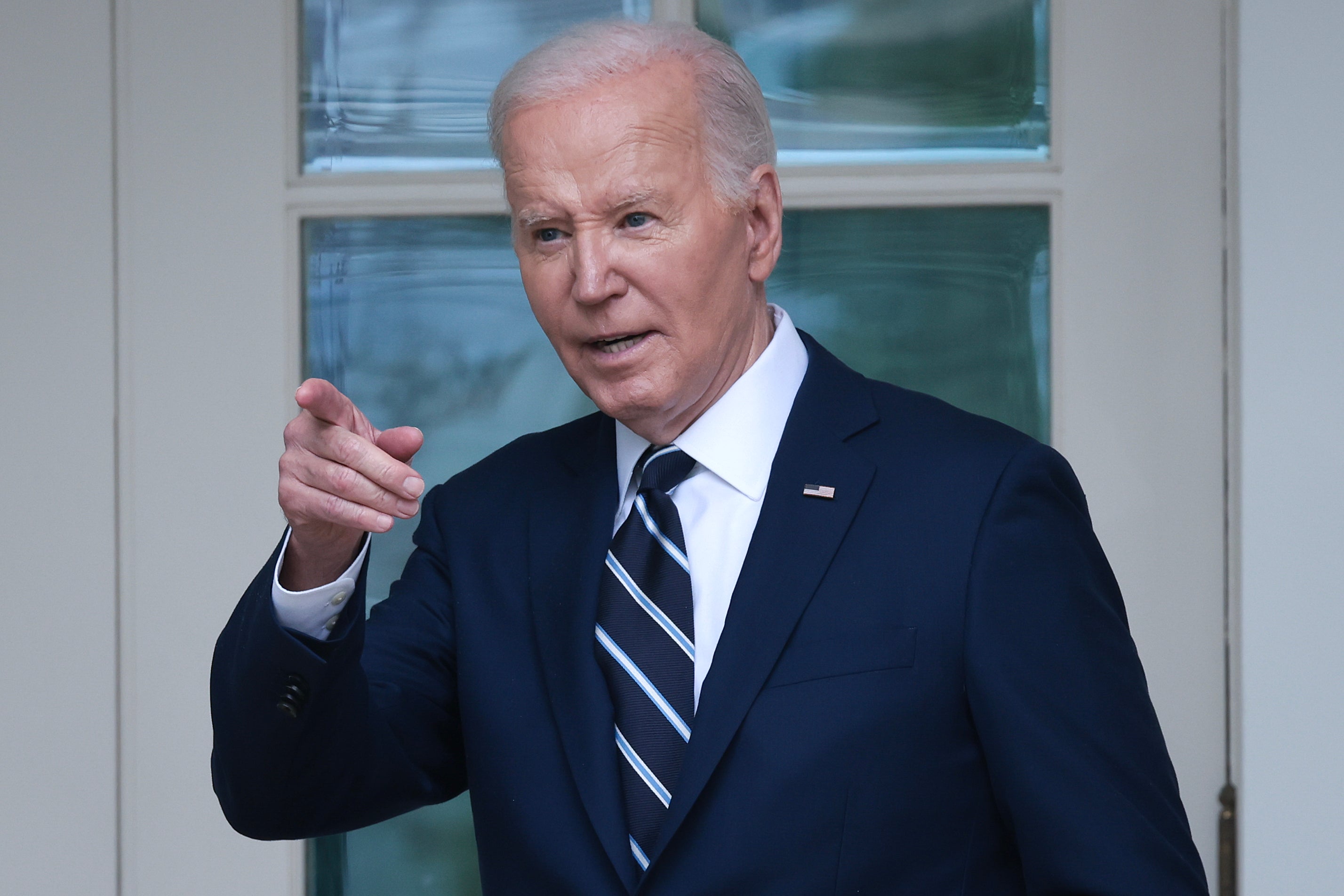Biden’s next move on climate change could be a huge roll of the electoral dice
The president’s plan to take on Big Electricity is a massive risk, writes David Callaway. But it is necessary to signal to the youth vote the key differences between himself and Trump when it comes to global warming


Joe Biden’s re-election campaign, in a bid to grab the youth vote by highlighting his vast divide with former president Donald Trump on the issue of the climate crisis, is set to take on its biggest opponent yet next week – Big Electricity.
After attacking the oil and gas industries last month with unprecedented new emissions rules, the Biden team will raise the stakes this coming week by unveiling a controversial plan to bring the nation’s three independent electric grids together to pay to rebuild the ageing, clogged US system of delivering electricity.
The plan, which in ambition is as big as president Dwight D Eisenhower’s campaign, decades ago, to build a national highway system, is an enormous bet that young people’s passion for fighting global warming will cause them to overlook their criticisms of Biden in relation to inflation, Gaza, immigration – and, of course, his age.
The stakes are enormous for American business and for the US economy, as the grid system will soon be unable to sustain the massive surge in power demand expected due to the extreme heat from climate change and from the hundreds of new data centres built to house new AI technologies. The Federal Energy Regulatory Commission recently hiked its forecast for demand growth in the US over the next five years by 81 per cent.
The plan will be pilloried by Trump and his Republican “red” state leaders, who favour expanded investment in fossil fuel companies to meet demand and provide energy security. America has become the world’s largest producer of oil in the past few years, and its oil giants such as Exxon and Chevron made tens of billions of dollars for their shareholders as oil prices surged after Russia invaded Ukraine.
The Republicans will claim that they don’t want to pay for what they view as a plan by Democrats and blue states to send them renewable energy such as wind and solar power. Such energy already exists in spades, but is blocked from the grids in many circumstances. Lawsuits are certain.
Two weeks ago, Biden attacked coal-fired power plants, ordering them to use nascent carbon removal technology to clean up their emissions entirely in 10 years or shut down. The order was the biggest climate initiative the president has attempted since passing the Inflation Reduction Act to invest in new climate technologies two years ago.
The US grid is made up of three separate grids: the Eastern Interconnection, which handles electricity for all states east of the Colorado Rockies; the Western Interconnection, which handles the west; and the Texas Interconnection, which Texas officials have historically operated independently.
Thousands of new, high-capacity transmission lines are needed to connect these grids and the hundreds of clean energy projects currently awaiting “interconnection”.
Like Biden’s IRA and his order on coal and gas plants to reduce emissions, the grid plan is both necessary and entirely at risk of being cut back or wiped out by an incoming Trump administration. The Biden re-election team has decided to play its hand ahead of time to illustrate to potential voters what is at stake in the election.
Grids, connections and emission reduction plans are the types of things that make voters’ eyes glaze over compared to abortion, gun control, Gaza, immigration or, frankly, election fraud speculation. But blackouts, rationed electricity, lost business opportunities, and lack of heat or cooling during extreme weather will force attention. This summer’s weather will play a big role in the election.
The president’s third and likely final major climate initiative of his first term, coming ahead of this summer’s party conventions and November’s election, puts the climate crisis squarely on the ballot. The question is whether a young US voter will put aside their concerns about inflation and Gaza for long enough to take notice.
David Callaway is founder of Callaway Climate Insights and former editor-in-chief of USA Today
Join our commenting forum
Join thought-provoking conversations, follow other Independent readers and see their replies
Comments
Bookmark popover
Removed from bookmarks